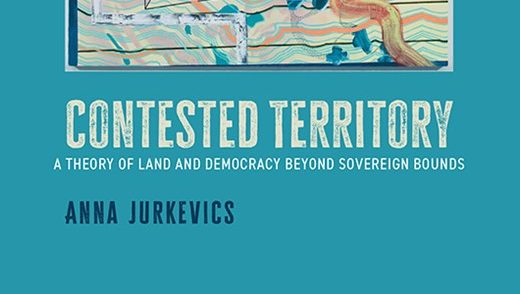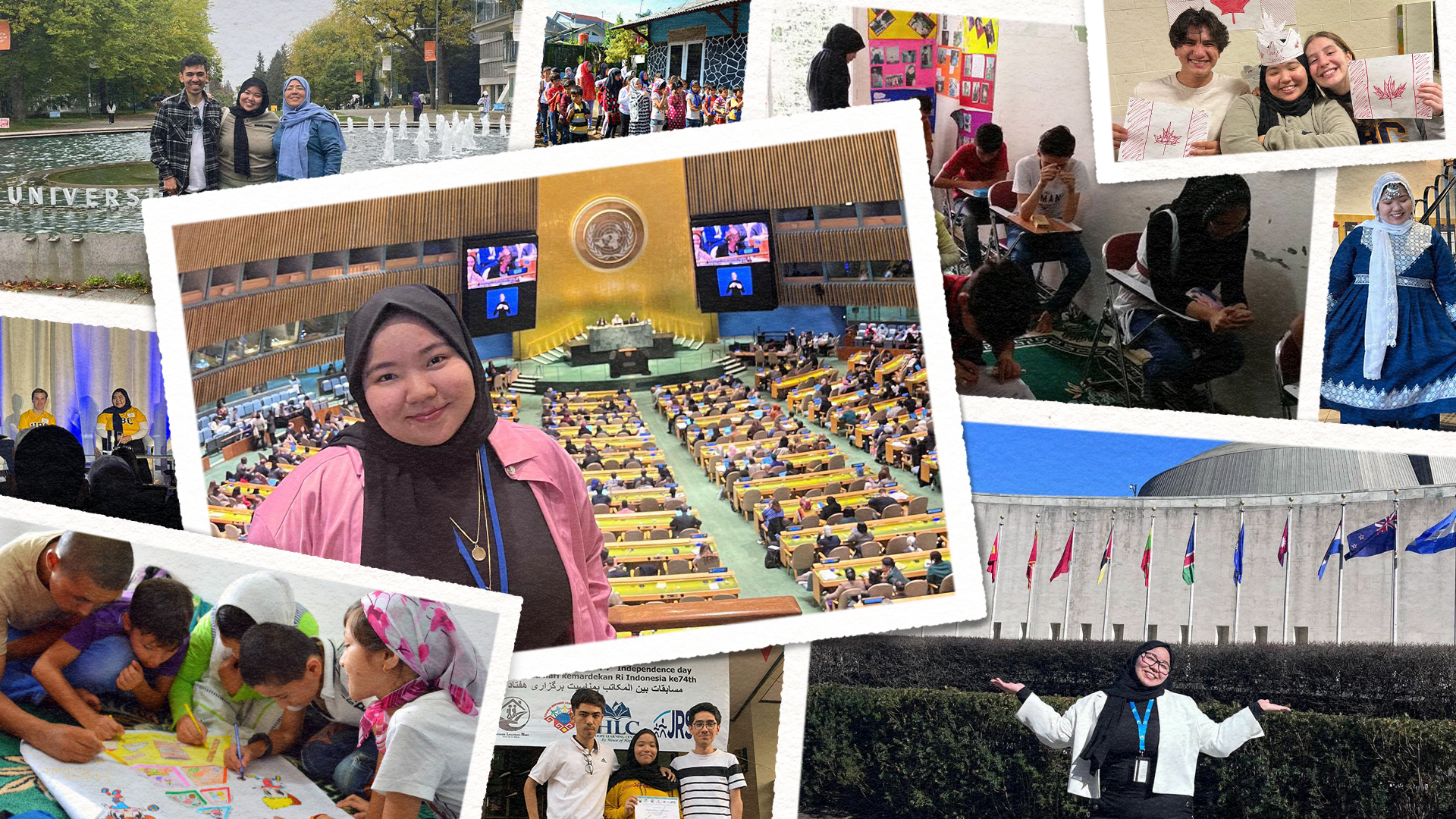Congratulations to Cesi Cruz, Peter Dauvergne, Alan Jacobs, Richard Johnston, and Kai Ostwald on their 2017 APSA Awards!
San Francisco, August 31 – September 3, 2017
113th APSA Annual Meeting & Exhibition
The annual meeting addresses the latest scholarship in political science while exploring the 2017 theme, “The Quest for Legitimacy: Actors, Audiences, and Aspirations.
Read on to find out more about the innovative research undertaken by our department’s most recent APSA award-winners.

Cesi Cruz, Assistant Professor
APSA Best Conference Paper Award – Political Networks Section
“Village Social Network Structures and Electoral Competition”
co-authored with J. Labonne and P. Querubin
This paper was applauded for its use of network theory, data and analysis to illuminate a significant problem in political science.
Abstract:
In this paper, we test whether the structure of village social networks affects political competition in local elections. We use data on 20 million individuals in 15,000 villages of the Philippines. We take advantage of naming conventions to assess intermarriage links between families and reconstruct the family networks in all of those villages. Using data from the 2010 local elections we show that there is less political competition in villages with dense social networks, a result that is robust to controlling for a large number of village and candidate characteristics and to alternative estimation techniques. We then explore the mechanisms behind this effect and present evidence, from a detailed dataset collected in 284 villages after the 2013 local elections, that political influence is more concentrated in denser villages and that this is associated with higher turnout and higher vote margins for the winning candidate.
Cesi holds the HSBC Chair in Asian Research, and is an Assistant Professor in the School of Public Policy and Global Affairs, and the Department of Political Science. She studies political economy, focusing on the interplay between electoral incentives and economic outcomes in consolidating democracies. Her research uses quantitative and qualitative methods, social network analysis, surveys, and field experiments. She holds a SSHRC Insight Development Grant (2016-2018), and her research is funded by the World Bank, USAID, and the U.S. National Science Foundation. She teaches courses on policy analysis and program evaluation, institutions and economic growth, the politics of development, and applied methodology.
Click here to view our previous feature on Cesi’s award.

Peter Dauvergne, Professor
APSA Michael Harrington Book Award – New Political Science Organized Section
Environmentalism of the Rich (2016, MIT Press)
The Michael Harrington Book Award recognizes an outstanding book that demonstrates how scholarship can be used in the struggle for a better world.
Peter’s book, Environmentalism of the Rich, reveals why a global political economy of ever more—more growth, more sales, more consumption—is swamping environmental gains. He argues that the environmental movement is increasingly dominated by the environmentalism of the rich—diverted into eco-business, eco-consumption, wilderness preservation, energy efficiency, and recycling. While there are some positive components of these developments, none get to the source of the current sustainability crisis. More eco-products can just mean more corporate profits, consumption, and waste.
Endorsements for this book include:
“In the emerging climate justice movement, frontline communities and vulnerable people are at the head of the fight all over the world. That’s because they understand that ‘green consumerism’ won’t conquer the problems we face; we need much deeper shifts in paradigms.”
—Bill McKibben, author of Deep Economy
“Dauvergne offers valuable insights on how the environmental movement has become increasingly co-opted and corrupted. This is required reading for anyone wanting to help ram the movement off its current dead-end path and build a new deep green movement.”
—Erik Assadourian, Senior Fellow, Worldwatch Institute
Peter is a professor of international relations, specializing in global environmental politics. His research covers the politics of social movements, consumption, and corporations, especially the consequences for social inequality and ecosystem degradation in the global South. Recent topics include the politics of climate change, food, biofuels, mining, ocean conservation, and tropical deforestation. At UBC, he has served as the Faculty of Arts associate dean (2006-08), senior adviser to the president (2008-09), and director of the Liu Institute for Global Issues (2009-14). He is also the founding and past editor of the journal Global Environmental Politics. In 2016, the International Studies Association presented him with its Distinguished Scholar Award for Environmental Studies. He was the Canada Research Chair in Global Environmental Politics (2002-2012), and he has authored, co-authored, and edited a total of 15 books.
Alan M. Jacobs, Associate Professor
APSA David Collier Mid-Career Achievement Award – Qualitative and Multi-Method Research Section
The David Collier Mid-Career Award honors David Collier’s contributions – through his research, graduate teaching, and institution-building – as a founder of the qualitative and multi-method research movement in contemporary political science. This award is one of the most important awards within the section, and it is presented annually to a mid-career political scientist to recognize distinction in methodological publications, innovative application of qualitative and multi-method approaches in substantive research, and/or institutional contributions to this area of methodology.
Alan was selected as co-winner of this award, and the selection committee noted the many ways he has advanced the study and use of sophisticated methods in political science, along with his outstanding service in the discipline through editing the Qualitative and Multi-Method Research publication and leading the Qualitative Transparency Deliberations. Alan also serves on the editorial boards of Cambridge University Press’s Methods of Social Inquiry series and of Palgrave Macmillan’s Political Analysis series.
Alan (Ph.D. Harvard, 2004) is an Associate Professor of Political Science specializing in the comparative political economy of advanced industrialized democracies, the politics of public policy, political behavior, and qualitative and mixed methodology. He teaches courses on comparative public policy and political economy, qualitative research methods, and research design. During 2016-17, Alan was an Alexander von Humboldt Foundation Research Fellow and visiting scholar at the Hertie School of Governance (Berlin). In 2015, he was a Fernand Braudel Senior Fellow at the European University Institute. His research has been funded by grants from the Social Sciences and Humanities Research Council of Canada, the DAAD, and the German Marshall Fund of the United States.
Jacobs’ first book, Governing for the Long Term: Democracy and the Politics of Investment (Cambridge, 2011, co-winner of the APSA award for the Best Book in Comparative Politics; winner of the APSA award for the Best Book Developing or Applying Qualitative Methods; and winner of the IPSA prize for the Best Book in Comparative Policy and Administration), examined how democratic governments manage long-term policy issues. This book and related articles have sought to understand the conditions under which elected governments are willing to impose short-term costs on their constituents in order to invest in long-term social benefits. Jacobs’ work in this area has sought to identify the distinctive features of the politics of intertemporal choice as compared to the more commonly analyzed politics of redistribution. Jacobs’ current projects focus on the politics of inequality, public attitudes toward policy tradeoffs and public-goods investment, and process-tracing and mixed-methods inquiry.
Click here to read our previous feature on Alan’s award.
Richard Johnston, Professor
APSA Mildred A. Schwartz Lifetime Achievement Award – Canadian Politics Section
The Mildred A. Schwartz Lifetime Achievement Award recognizes scholarship and leadership in bringing the study of Canadian Politics to the international political science community.
Richard Johnston (PhD Stanford) holds the Canada Research Chair in Public Opinion, Elections, and Representation, and he was recently awarded the Research Award of the Alexander von Humboldt Foundation, 2017. He is a past President of the Canadian Political Science Association (2007-08), and he has taught at the University of Toronto, the California Institute of Technology, Harvard University (Mackenzie King chair, 1994-5), and the University of Pennsylvania, along with having held visiting fellowships at Queen’s University at Kingston, the Mannheimer Zentrum für Europäische Sozialforschung (MZES), and the Australian National University. From 2009 to 2012, he was a Marie Curie Research Fellow attached to the European University Institute.
Dick’s research falls into three major areas: electoral systems, party systems, and parties; communications media and campaigns; and, social capital, diversity, and the welfare state. He works across the subfields of Canadian Politics, Comparative Politics, and US Politics, and Dick is now working on a comparative study of campaigns, funded by a SSHRC Insight grant awarded in 2016.
His most recent book, The Canadian Party System (2017), has received accolades for being a political science tour de force, which draws on history and recently developed analytical tools to define a series of propositions underpinning the Canadian party system, which is considered to be a deviant case among Anglo-American democracies.
Other significant publications include, The End of Southern Exceptionalism: Class, Race, and Partisan Change in the Postwar South (written with with Byron E. Shafer, and awarded the 2007 APSA Best Book Award on Race, Ethnicity, and Political Representation & Participation in the APSA Race, Ethnicity, and Politics Section, along with the 2007 V.O. Key Award, Southern Political Science Association); Letting the People Decide: Dynamics of a Canadian Election (with André Blais, Henry E. Brady, and Jean Crête), which won the Harold Adams Innis Prize for the best book in the social sciences in Canada (1992-93); The 2000 Presidential Election and the Foundations of Party Politics (with Michael G. Hagen and Kathleen Hall Jamieson); and Public Opinion and Public Policy in Canada: Questions of Confidence.
Previous winners of the Mildred A. Schwartz Lifetime Achievement Award include Keith Banting (Queen’s), Lawrence LeDuc (U of T), Sylvia Bashevkin (U of T), Charles Doran Sr. (John Hopkins), and esteemed Professor Emeritus R. Kenneth Carty (UBC).

Kai Ostwald, Assistant Professor
APSA Best Paper Award – Southeast Asia Politics Group
“Explaining Elections in Singapore: Party Credibility and Valence Politics,” co-authored with Steven Oliver.
This paper was noted for making an important contribution to the existing scholarly literature by explaining party durability in Singapore, and for creating a strong link between theory and empirics, while being firmly grounded in Southeast Asia. In particular, it addressed the significant issue of public support for a soft-authoritarian regime; a regime that is atypical in comparative politics for its durability in a highly developed society.
Kai is an Assistant Professor with a joint appointment in the School of Public Policy and Global Affairs, and the Department of Political Science. He is a Faculty Affiliate of the Institute of Asian Research, and is the former director of the Centre for Southeast Asia Research. His specializes in comparative politics, with a particular focus on ethnic politics, public policy, and the political economy of development. His research is mainly situated in Southeast Asia, especially Singapore, Malaysia, and Indonesia. He has spent over five years on-location in the region in private sector and academic roles, and his research has appeared in numerous outlets and has been supported by funding from the National Science Foundation (NSF), UC Pacific Rim Research Program (PacRim), the Center on Emerging and Pacific Economies (EmPac), and the International Development Research Centre (IDRC) of Canada.
Currently, Kai is involved in several large research projects with external partners, including the Canada-ASEAN Business Outlook Survey, the Emerging Myanmar Initiative, the Varieties of Democracy Project, and the Canada-ASEAN Free Trade Agreement Study.




